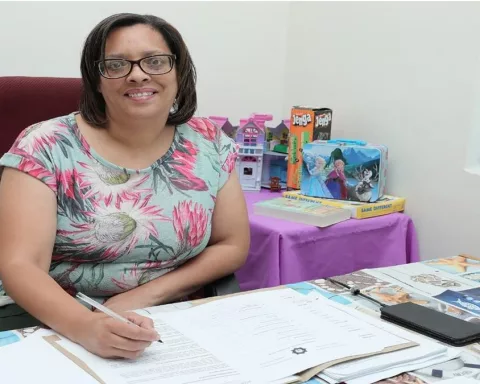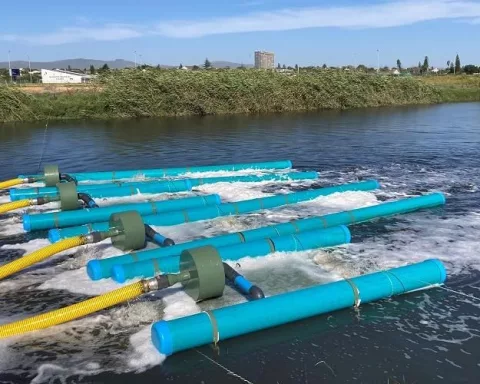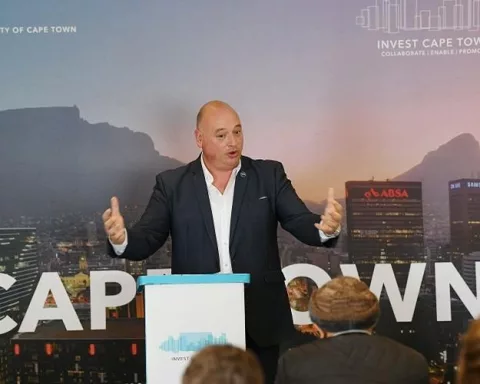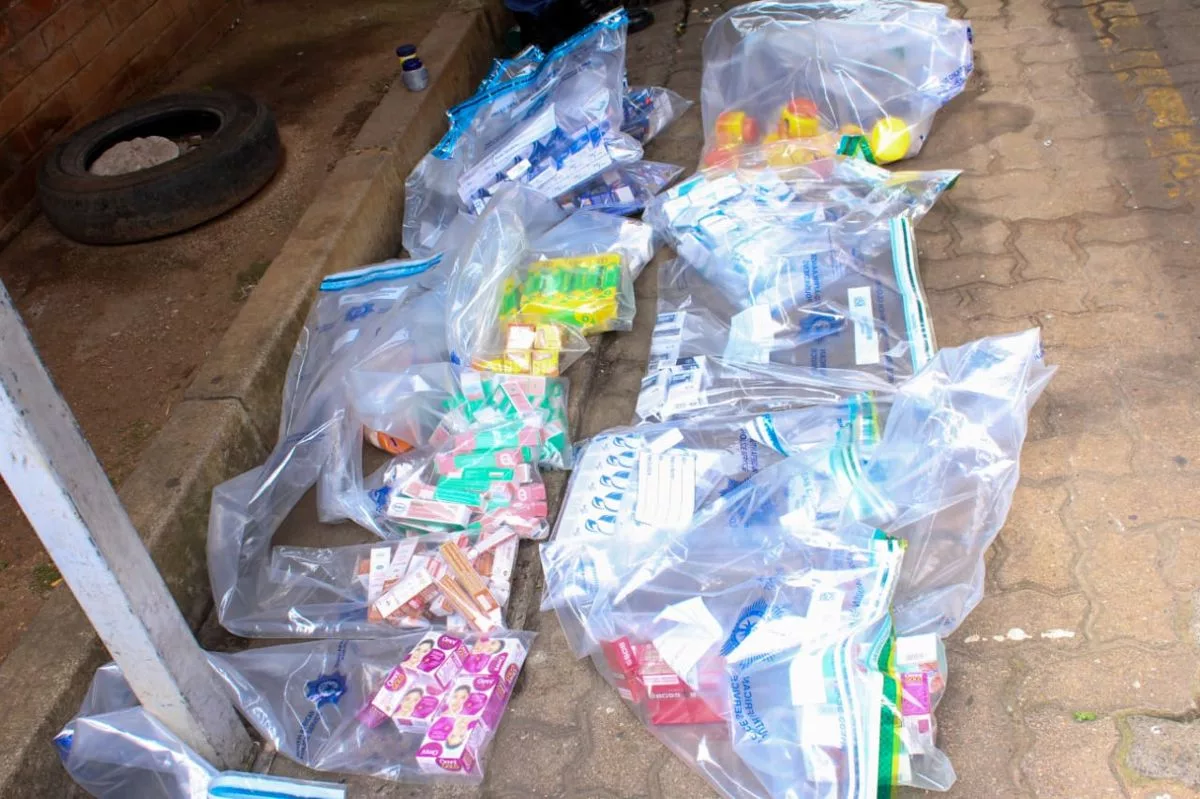South Africa is taking significant steps to improve its education sector, with a focus on initiatives such as enhanced security measures and contingency plans for national exams, adoption of the Basic Education Laws Amendment Bill, and infrastructure development. The country is also working to address challenges and unlock the potential of its youth through early learning programs and engagement with stakeholders. These efforts highlight the collaborative dedication of various departments, institutions, and stakeholders towards a bright future for South Africa’s education landscape.
How is South Africa enhancing its education sector?
South Africa is committed to improving its education sector through various initiatives, such as increased security measures and contingency plans for national exams, the adoption of the Basic Education Laws Amendment Bill, enhancement of early learning programs, infrastructure development, and engagement with stakeholders. These efforts are aimed at addressing challenges and unlocking the vast potential of South Africa’s youth.
Stepping Up Security and Quality for National Examinations
South Africa’s recent victory in the Rugby World Cup has brought the nation together, but another significant development is also taking place: a strong commitment to enhancing the education sector. The forthcoming National Senior Certificate examinations for the Class of 2023 exemplify this commitment, as they will take place with increased security measures and contingency plans to ensure a seamless and uninterrupted process for the 717,377 registered candidates across 6,898 centres.
The careful implementation of these exams is further supported by the endorsement of Umalusi, the Council for Quality Assurance in General and Further Education and Training. Additionally, stringent security protocols and backup power sources will be in place to counter the effects of load shedding. This steady progress highlights the collaborative efforts of the Department of Basic Education, Provincial Education Departments (PEDs), and other stakeholders in fostering the goals and dreams of South Africa’s young learners.
Addressing Challenges and Enhancing the Education Ecosystem
Beyond the ongoing examination process, the department has launched several key initiatives aimed at tackling the challenges within the basic education sector. The National Assembly’s adoption of the Basic Education Laws Amendment Bill (BELA Bill) represents a significant step towards improving the education landscape. The bill’s strategic objectives include making Grade R compulsory, implementing financial and public accountability frameworks, and refining the admissions policy for undocumented learners. Importantly, the bill does not revoke the powers of school governing bodies (SGBs); instead, it harmonizes their authority with that of provincial heads of departments.
Another area of focus for the department is Early Childhood Development (ECD). Concentrating on the enhancement of early learning programmes, the department has trained thousands of early learning practitioners, parents, and caregivers, while also monitoring and supporting ECD centres across all provinces. To bridge the access gap to early learning programmes, the department has established a vision and strategy for achieving universal access by 2030. This ambitious plan involves the creation of an ECD Compact, uniting various stakeholders in the pursuit of ensuring children can thrive by the age of five.
Infrastructure Development and Engaging with Stakeholders
The department is also working closely with PEDs to supply essential school infrastructure. The annual performance plan targets are expected to be achieved, with the allocated budget being used effectively. This infrastructure push includes providing sanitation facilities to thousands of schools under the SAFE programme.
The department has also responded to the recently released Oppenheimer Memorial Trust Education report, which presents several intriguing suggestions based on research and interviews. Although the department recognizes some inaccuracies in the report’s analysis of the basic education sector, it appreciates the report’s focus on the future of South Africa’s education system and its alignment with the National Development Plan (NDP). The department is also planning a colloquium with higher education institutions and other stakeholders to explore new ideas and action in the education arena, including the science of teaching reading and addressing content knowledge gaps.
South Africa’s educational landscape is experiencing steady progress, thanks to the collaborative efforts of various departments, institutions, and stakeholders. Just as the Springboks’ victory represents a triumphant moment for the nation, the dedication to unlocking the vast potential of South Africa’s youth illuminates a similarly bright path towards a promising future.
1. What initiatives is South Africa taking to improve its education sector?
South Africa is taking various initiatives such as increased security measures and contingency plans for national exams, adoption of the Basic Education Laws Amendment Bill, enhancement of early learning programs, infrastructure development, and engagement with stakeholders to improve its education sector.
2. How is South Africa improving the security and quality for national examinations?
South Africa is committed to improving the security and quality for national examinations by implementing increased security measures and contingency plans, stringent security protocols, and backup power sources to counter the effects of load shedding. This progress highlights the collaborative efforts of the Department of Basic Education, Provincial Education Departments (PEDs), and other stakeholders in fostering the goals and dreams of South Africa’s young learners.
3. What is the Basic Education Laws Amendment Bill?
The Basic Education Laws Amendment Bill (BELA Bill) is a bill adopted by the National Assembly aimed at improving the education landscape in South Africa. The bill’s strategic objectives include making Grade R compulsory, implementing financial and public accountability frameworks, and refining the admissions policy for undocumented learners. Importantly, the bill does not revoke the powers of school governing bodies (SGBs); instead, it harmonizes their authority with that of provincial heads of departments.
4. What is the department doing to enhance early childhood development?
The department is enhancing early childhood development programs by training thousands of early learning practitioners, parents, and caregivers, while also monitoring and supporting ECD centres across all provinces. To bridge the access gap to early learning programmes, the department has established a vision and strategy for achieving universal access by 2030. This ambitious plan involves the creation of an ECD Compact, uniting various stakeholders in the pursuit of ensuring children can thrive by the age of five.
5. How is South Africa addressing challenges in the basic education sector?
The department is addressing challenges in the basic education sector by launching several key initiatives aimed at tackling them. The National Assembly’s adoption of the BELA Bill represents a significant step towards improving the education landscape. The department is also enhancing early childhood development programs and working closely with PEDs to supply essential school infrastructure.
6. What is the department doing to engage with stakeholders?
The department is engaging with stakeholders by responding to reports, such as the Oppenheimer Memorial Trust Education report, which presents several intriguing suggestions based on research and interviews. The department also plans to hold a colloquium with higher education institutions and other stakeholders to explore new ideas and actions in the education arena, including the science of teaching reading and addressing content knowledge gaps.
7. What is the department doing to improve school infrastructure?
The department is working closely with PEDs to supply essential school infrastructure, and the annual performance plan targets are expected to be achieved, with the allocated budget being used effectively. This infrastructure push includes providing sanitation facilities to thousands of schools under the SAFE program.
8. How does South Africa plan to achieve universal access to early learning programs?
South Africa plans to achieve universal access to early learning programs by establishing a vision and strategy for achieving this goal by 2030. This ambitious plan involves the creation of an ECD Compact, uniting various stakeholders in the pursuit of ensuring children can thrive by the age of five. The department is also training early learning practitioners, parents, and caregivers while monitoring and supporting ECD centers across all provinces to bridge the access gap to these programs.












